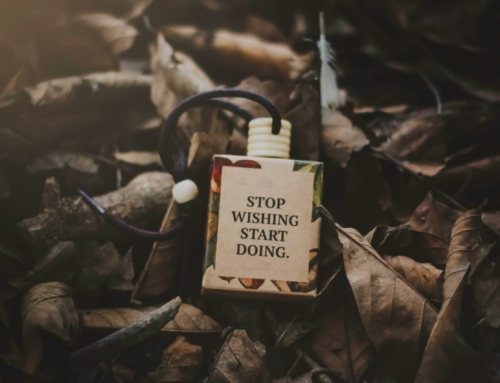Unleashing Potential: Navigating Teenager Personal Growth with Jesse LeBeau
Introduction: Unleashing Potential: Navigating Teenager Personal Growth with Jesse LeBeau
Hey there! Welcome to a journey of discovery and empowerment—one that’s all about you, the incredible teenager standing on the brink of everything exciting. I’m Jesse LeBeau, and I’m here to talk heart-to-heart about personal growth during one of the most vibrant yet challenging phases of life—your teenage years.
Remember, growth isn’t just about getting taller or acing your tests (though those are cool milestones too!). It’s about evolving your mindset, expanding your horizons, and learning how to navigate life’s ups and downs with resilience and confidence. I’ve been there, through the highs and the lows, and I’ve gathered some real-life insights and tools that I wish I had when I was in your shoes.
Why focus on personal growth? Because being a teenager isn’t just a transitional phase; it’s a critical time for setting the foundations of the person you are becoming. From handling peer pressure to setting your first big goals, these years are filled with opportunities to shape a robust and vibrant character. And let me tell you—it’s thrilling to see just how much you can grow when you’re equipped with the right mindset and support.
In this blog, we’re going to explore the essential building blocks of personal growth for teenagers. We’ll dive into understanding your unique journey, the importance of building resilience, cultivating confidence, and managing the everyday challenges that come your way. I’ll share personal anecdotes and practical advice that can help light your path to not just succeeding, but thriving.
Ready to kickstart your growth journey and unleash your full potential? Let’s dive in and discover how you can turn challenges into stepping stones and your dreams into reality. This isn’t just about growing up; it’s about growing into the incredible individual you’re meant to be. So, let’s get moving—you’ve got an exciting path ahead, and I’m here to guide you every step of the way!
Understanding the Teenage Journey
Growing up isn’t a sprint; it’s more like a marathon with its own set of hurdles and high points. As teenagers, you’re not just passing through a series of years on the way to adulthood—you’re living vibrant days that will shape who you become. Let’s break down what this journey really entails and how you can navigate it with confidence.
The Unique Challenges of Teenage Years
Being a teenager today isn’t anything like it was even a decade ago. You’re growing up in a digital era where social media often dictates trends and sets expectations. There’s academic pressure, social life, family expectations, and the quest to find out where you fit in all this chaos. Sometimes, it feels like you’re expected to have your life figured out before you even start living it!
But here’s the kicker—these years are also your best opportunity to experiment, to learn from mistakes, and to start understanding what really matters to you. Each challenge is a chance to test your resilience and adaptability. Whether it’s dealing with school stress, navigating friendships, or managing time between hobbies and homework, each experience is molding you into a versatile and capable individual.
The Importance of Self-Discovery During Adolescence
Adolescence is the prime time for self-discovery. It’s when you start asking big questions: Who am I? What do I stand for? What are my passions? Discovering the answers isn’t about looking outward—it’s about looking within. It’s about trying new things, whether that’s sports, arts, coding, or anything else that piques your interest.
Remember, self-discovery is not a linear process; it’s a series of trying, failing, learning, and growing. It’s about building a personal toolkit of skills and insights that you’ll carry into adulthood. This is the time to embrace your quirks, explore your interests, and start forming your own opinions about the world.
Milestones of Teen Development
While every teen’s journey is unique, there are some common milestones most of you will encounter. These include your first major academic choices, like selecting your courses or planning for college; your first real relationships and the deep bonds you form; and the first steps you take towards independence, like getting your driver’s license or your first job.
These milestones are not just checkboxes on the path to adulthood; they’re opportunities to learn about responsibility, about balancing expectations with desires, and about the art of decision-making. Each of these milestones comes with its own set of challenges and triumphs, and how you navigate them sets the stage for your future.
Building Blocks of Personal Growth
Personal growth during the teenage years isn’t just about overcoming the daily hurdles—it’s about building a solid foundation that will support you as you move forward in life. Here, we’ll explore the core elements that contribute to a strong personal growth framework: confidence, resilience, and positive relationships.
The Role of Confidence and How to Cultivate It
Confidence isn’t something you’re born with—it’s something you build, one success and one setback at a time. It starts with setting small goals and achieving them, which builds your belief in your own abilities. Whether it’s improving your grades, getting better at a sport, or learning a new skill, each small victory adds up.
But confidence also comes from facing your fears and learning to step outside your comfort zone. It’s about speaking up in class, trying out for the school play, or even standing up for what you believe in. Remember, confidence grows when you challenge yourself to do things that might scare you at first.
Resilience: Bouncing Back Stronger
If confidence is about building strength, resilience is about using that strength when things don’t go as planned. It’s the ability to bounce back from disappointments, whether it’s a bad grade, a lost game, or a friendship that didn’t work out. Resilience is built through experience—by facing challenges and learning to navigate them.
One key to developing resilience is maintaining a positive outlook. It’s not about ignoring the negative, but rather about finding a way to learn from it. It’s also about knowing when to ask for help—because being resilient doesn’t mean going it alone. It means knowing that seeking support, whether from family, friends, or mentors, is part of learning how to stand strong.
The Impact of Positive Friendships and Relationships
The people you surround yourself with have a significant impact on your personal growth. Positive, supportive friendships and relationships encourage you to be your best self. They provide comfort and advice during tough times and celebrate with you during the good ones.
Cultivating these relationships involves empathy, respect, and communication. It’s about listening as much as you talk, and about being there for others just as they are there for you. It also means setting boundaries and respecting others’ boundaries, which is crucial for healthy relationships.
Practical Tips for Everyday Growth
Now that we’ve established the core components of personal growth, let’s talk about how to integrate these elements into your daily life. Growth is a continuous process, and with the right strategies, you can make it a natural part of your routine.
Setting Realistic Goals and Achieving Them
Goal setting is a powerful tool for personal growth—it gives you a roadmap for where you want to go and what you want to achieve. Start by setting small, achievable goals that lead to bigger ambitions. For example, if you want to improve your grades, start by setting a goal to study for an extra 30 minutes each day.
The key to successful goal setting is specificity and measurability. Instead of setting a vague goal like “get better at math,” set a specific goal like “improve my math grade by one letter by the end of the semester.” This way, you can clearly measure your progress and stay motivated.
Managing Time and Responsibilities Effectively
Time management is crucial, especially when you’re balancing school, hobbies, social life, and maybe even a part-time job. One effective method is the use of planners or digital apps to keep track of your tasks and deadlines. Prioritize your tasks based on urgency and importance, and don’t forget to schedule in breaks—your brain needs rest to perform at its best.
Learn to say no to things that overextend your capabilities or clash with your priorities. It’s important to have boundaries and respect your own limits. Managing your responsibilities well teaches you discipline and helps reduce stress, making you more effective in every area of your life.
Healthy Habits for a Healthy Mind
Physical health and mental health are deeply interconnected. Developing healthy habits like regular exercise, balanced nutrition, and adequate sleep can significantly affect your mood, energy levels, and overall mental health.
Exercise, in particular, is not just about staying fit; it’s also a powerful stress reliever. Whether it’s a sport, yoga, or just daily walks, find an activity that you enjoy. Similarly, mindful practices like meditation can help you develop better focus and emotional resilience.
Overcoming Obstacles and Setbacks
Everyone encounters setbacks and obstacles—it’s a natural part of life, especially during your teenage years when you’re experiencing so many firsts. What’s important is not the setbacks themselves, but how you handle them and what you learn from them. Let’s explore some ways to navigate these challenges effectively.
Dealing with Peer Pressure and Expectations
Peer pressure is a significant challenge during adolescence. It can come in many forms, from pressure to fit in socially, to academic competition, to making choices that don’t align with your values. Standing your ground requires self-awareness and confidence in who you are and what you stand for.
Start by clearly defining your values and boundaries. Know what you’re comfortable with and what crosses the line. When faced with pressure, trust your instincts. Practice assertiveness—being able to express your feelings and make clear choices respectfully and confidently. Remember, it’s okay to walk away from situations or relationships that feel wrong.
How to Navigate Failure and Learn from It
Failure is not the opposite of success; it’s a part of the journey to success. Whether it’s a failed test, a rejected application, or a missed goal, each failure carries valuable lessons. The key is to approach failure with a growth mindset—seeing it as an opportunity to learn and improve, not as a reflection of your worth.
After a setback, take some time to reflect on what happened. Ask yourself: What can I learn from this? How can I improve for next time? This reflection turns failure into a stepping stone rather than a stumbling block. It builds resilience and wisdom, equipping you better for future challenges.
Seeking Help When Needed: The Importance of Mentorship
No one is expected to navigate their growth journey alone. Seeking guidance from mentors, whether they are teachers, coaches, family members, or even peers, can provide you with insights and advice that are invaluable.
Mentors can offer a different perspective, encourage you when you’re down, and share their own experiences and strategies for overcoming obstacles. Don’t hesitate to reach out for help when you need it—embracing the support and wisdom of others is a sign of strength and maturity.
Jesse’s Personal Insights on Growth
Growing up isn’t easy, and I’ve had my fair share of bumps along the road. But each challenge brought with it valuable lessons that shaped who I am today. Let’s dive into some stories and insights from my own teenage years that I hope will resonate with you and help light your path forward.
Stories from Jesse’s Own Teen Years
Growing up, I was always the underdog, the smaller guy on the basketball court, the one many counted out. But instead of letting that define me, I used it as fuel to push harder and dream bigger. I remember one particular game where I was overlooked by my coach for the starting lineup. Instead of sulking, I spent extra hours practicing, which not only improved my game but also taught me the importance of perseverance and self-belief.
It was during these formative years that I learned a crucial lesson: your current circumstances don’t determine where you can go; they merely determine where you start. This mindset helped me turn my passion for basketball into a motivational tool, not only for myself but for others as well.
Lessons Learned and Advice for Younger Self
If I could talk to my younger self, I’d say, “Worry less about fitting in and more about standing out. Embrace your uniqueness and let your true self shine through.” It’s easy to get caught up in what others think and expect of you, but authenticity is your greatest asset. Be honest about who you are and what you love, and you’ll attract the right opportunities and people into your life.
I’d also emphasize the importance of resilience. You will face setbacks. You will have doubts. But how you respond to these challenges is what really counts. Always get back up, no matter how hard you fall. Resilience isn’t just about recovering from setbacks; it’s about using them as stepping stones to your next victory.
How Jesse’s Experiences Shape His Mentorship Approach
My journey has taught me that everyone has the potential to achieve great things, but sometimes they just need a little guidance and encouragement to see it within themselves. This understanding is at the core of my mentorship approach. I strive to be the mentor I needed when I was younger—someone to offer not just advice but also support and encouragement.
Through sharing my experiences, both the victories and the challenges, I aim to show that it’s possible to overcome obstacles and achieve your dreams, no matter where you start. My goal is to empower you to take charge of your journey, believe in your potential, and push beyond the limits you think you have.
Engaging with Your Growth Journey
Embarking on your personal growth journey can seem daunting, but remember, every big journey begins with a small step. Here’s how you can start today, with some guidance and a little push from someone who’s been in your shoes.
How to Start Your Personal Growth Journey Today
The best way to start is simply by deciding to begin. Choose one area you want to improve—whether it’s your confidence, your academics, or your relationships—and set a clear, manageable goal. Maybe you want to raise your hand at least once in every class, or perhaps you want to make a new friend this month. Whatever it is, write it down, make a plan, and take that first step.
Consistency is key. Personal growth doesn’t happen overnight; it’s the result of daily efforts. Even on days when it feels tough, remind yourself of your goals and push through. Small, consistent actions not only build habits but also gradually lead to significant transformations.
Tools and Resources Jesse Recommends
To help you along the way, here are a few tools and resources I’ve found incredibly useful:
-
Books on Personal Development: Start with “The 7 Habits of Highly Effective Teens” by Sean Covey. It’s a great introduction to personal growth and managing your life effectively.
-
Meditation Apps: Apps like Headspace or Calm offer guided meditations that can help you manage stress and improve your focus.
-
Goal-Setting Apps: Tools like Trello or Asana can help you track your goals and tasks, keeping you organized and motivated.








